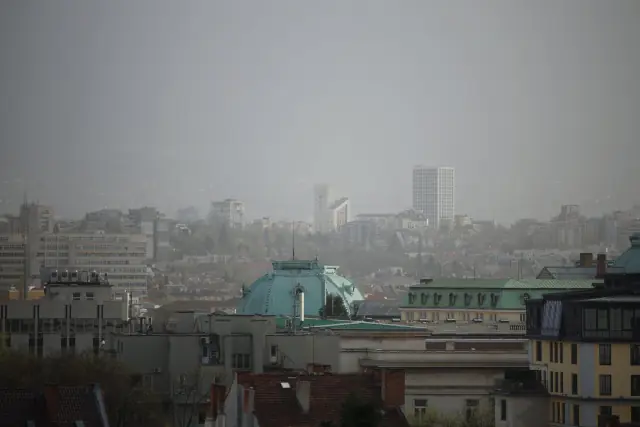
Starting in 2029, heating with wood and coal will be entirely banned across Sofia as the city ramps up efforts to tackle its longstanding air pollution problem.
The regulation, initially adopted two years ago, represents a significant shift in Sofia’s approach to reducing harmful emissions and promoting cleaner energy sources.
Enforcement of the ban began last winter with restrictions targeting polluting vehicles in the city center.
This year, the scope of these restrictions will broaden. From January 1, 2025, the use of solid fuels, including wood and coal, will be prohibited in nine of Sofia’s 24 districts.
Areas affected by this initial expansion include “Izgrev,” “Oborishte,” “Studentski,” “Ilinden,” “Krasno selo,” “Lozenets,” “Triaditsa,” and “Vazrazhdane.”
By 2029, Sofia will be declared a low-emission zone, completely banning the use of wood and coal for heating across the entire municipality.
The measure targets a key source of pollution in the Bulgarian capital. According to recent data, more than 50,000 households in Sofia still rely on wood and coal for heating, significantly contributing to the city’s smog and poor air quality during the winter months.
The new regulations are designed to encourage residents to adopt cleaner, more sustainable alternatives.
Several residents have already made the switch from traditional wood- and coal-burning stoves to cleaner alternatives through a program run by the Metropolitan Municipality.
This initiative, funded by European Union resources, provided subsidies for new appliances such as air conditioners, pellet stoves, and heat pumps.
The first phase of the program saw thousands of households benefit from the replacement scheme. Now, the city is preparing to launch a second phase.
In this next phase, the Metropolitan Municipality aims to replace up to 10,800 more old stoves with modern, cleaner alternatives.
The program will cover the cost of these replacements, providing residents with options such as air conditioners, pellet stoves, and heat pumps.
Additionally, for those interested in renewable energy, photovoltaic systems will also be offered as part of the replacement program.
The new initiative is funded by over 73 million leva allocated from the European “Environment” program.
Although no suppliers for the new appliances have been chosen yet, and the replacement process has not officially begun, the city has opened channels for residents to submit expressions of interest. Those who register early will be prioritized once the program is up and running.
Officials from the Metropolitan Municipality emphasize that the initiative is critical for improving Sofia’s air quality and reducing harmful emissions.
“This is a necessary step for the health and well-being of our residents,” said Mayor Yordanka Fandakova. “We are committed to ensuring that the transition to cleaner energy sources is as smooth and accessible as possible for everyone.”
With the 2029 deadline approaching, the municipality is working to ensure that residents are informed and prepared for the upcoming changes.
Outreach programs will be implemented to educate the public about the new regulations, as well as the benefits of switching to cleaner heating options.
The city hopes that by the time the full ban takes effect, Sofia’s air will be notably cleaner, benefiting all who live and work in the capital.
This article was created using automation technology and was thoroughly edited and fact-checked by one of our editorial staff members
